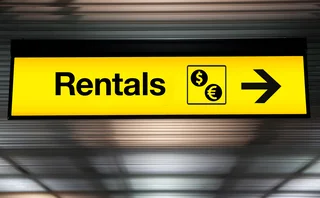
Peer-to-peer is not a zero-sum game
Some mistakenly talk of P2P as taking over the swap market, but it will be more of an accompaniment
To some, peer-to-peer trading is the topic that dare not speak its name. Many dealers are not keen to talk about it, and when they do, it’s in hushed terms.
In one conversation for a recent article on FX HedgePool, a senior trader at a large dealer said that despite him not being bullish about the service, his clients were so interested in it that he didn’t feel able to reveal how he really felt, at risk of offending them.
Like it or not, though, interest in peer-to-peer is on the rise among market participants with big, regular swaps flows to transact. Major names like Vanguard are using it already, and huge corporates like Shell are watching it with interest.
Part of the reluctance to talk about the topic could be down to the idea that it’s a zero-sum game – either banks and the bilateral market will win, or FX HedgePool will take over and dealers will lose out on a lucrative business. In that view, a dealer criticising peer-to-peer means it wants to retain the status quo and shut out new entrants.
But that’s just not the reality, as the platform readily admits. Peer-to-peer is most likely going to be an accompaniment to the bilateral market – it will never replace it.
Users might match all of their flow off against peers one month and not have to go to the bilateral markets, or they might only get a partial fill. In the latter case, they still need that bilateral market to exist to round out their hedging needs.
And of course, FX HedgePool needs banks to function. The platform allows users to find peers with offsetting needs, but upon execution dealers are still playing a role as credit intermediators. While they’ve been quiet about their involvement, you wouldn’t see banks like Barclays and BNP Paribas signing up as credit providers if they thought it was going to cannibalise their own business.
As one FX head at a regional bank says, the fact that things work well now doesn’t mean we shouldn’t try and do things more efficiently.
The real question is how much topping up users would need to do in the open market after matching flows off on FX HedgePool, and what effect that will ultimately have on liquidity. One trader tells FX Markets that he’s already seen peer-to-peer drain some of the liquidity from the open market, and traders will surely be watching closely to see how that dynamic evolves.
Only users who have a paid subscription or are part of a corporate subscription are able to print or copy content.
To access these options, along with all other subscription benefits, please contact customer services - www.fx-markets.com/static/contact-us, or view our subscription options here: https://subscriptions.fx-markets.com/subscribe
You are currently unable to print this content. Please contact customer services - www.fx-markets.com/static/contact-us to find out more.
You are currently unable to copy this content. Please contact info@fx-markets.com to find out more.
Copyright Infopro Digital Limited. All rights reserved.
As outlined in our terms and conditions, https://www.infopro-digital.com/terms-and-conditions/subscriptions/ (point 2.4), printing is limited to a single copy.
If you would like to purchase additional rights please email info@fx-markets.com
Copyright Infopro Digital Limited. All rights reserved.
You may share this content using our article tools. As outlined in our terms and conditions, https://www.infopro-digital.com/terms-and-conditions/subscriptions/ (clause 2.4), an Authorised User may only make one copy of the materials for their own personal use. You must also comply with the restrictions in clause 2.5.
If you would like to purchase additional rights please email info@fx-markets.com
More on Our take
FX traders revel in March Madness
Chaotic Trump policies finally bring diversity to flows – to the delight of market-makers
Could LPs explore renting out their client franchise?
Connecting regional banks with sophisticated clients may see dealers evolve to become liquidity distribution hubs
Higher rates see corporates reassess FX structured products
Treasurers are getting a taste for dual currency notes and structured forwards
Quants dive into FX fixing windows debate
Longer fixing windows benefit clients, but predicting how dealers will respond is tough
Low FX vol regime fuels exotics expansion
Interest is growing in the products as a way to squeeze juice out of a flat market
BofA quants propose new model for when to hold, when to sell
Closed-form formula helps market-makers optimise exit strategies
FX forwards dealers face added challenges in P&L analysis
Mark-out tools for forwards and swaps trading may not be a panacea
What T+1 risk? Dealers shake off FX concerns
Predictions of increased settlement risk and later-in-the-day trading have yet to materialise








